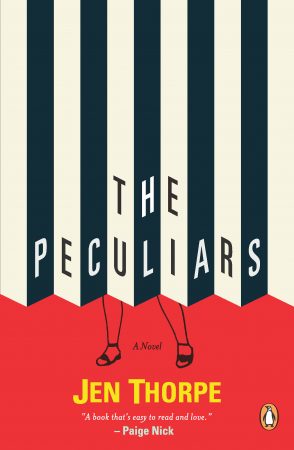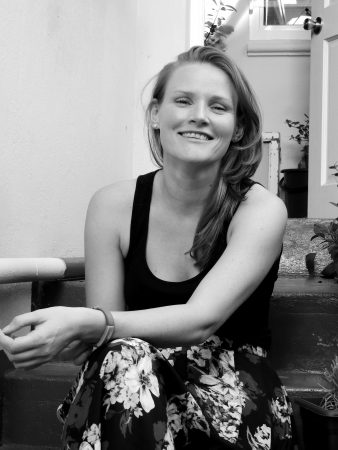
As a participant of the very first African Women Writer’s workshop, Thorpe’s passion for writing and social justice has always been an integral part of her creative process. And whilst her creativity is far from a surprise, the playful story telling of serious things is something that speaks to both the life of the author and the kind of story telling she wants to partake in. Her debut novel, The Peculiars speaks to both the background of the author, and the kind of story telling she has always wished to engage. The telling of heavy things in a light hearted way, is an art onto itself, and it’s an art that Jennifer Thorpe has managed briliantly.
Jennifer’s career as a writer has always been paired with her need to see social change, and to be involved in making it happen. When speaking with her it becomes clear that the passion to be a story teller was always a part of her.
“I’ve always liked to write since I was a child… But then I studied politics and I wanted to do something a bit more academic.” She pursued her more academic passions in University and went on to work in several NGO’s including the Treatment Action Campaign and Rape Crisis Capetown trust. The experiences of the latter served as inspiration for The Peculiars.
“In some ways it was really good for my writing because it made me very angry a lot of the time; because of the inaction on the part of government and what I felt was the too slow action on the part of people and civil society.”
The Peculiars however, doesn’t deal with the heavy subject matter she was forced to engage whilst working for the Rape Crisis Capetown trust. The idea of a place for people to go to seek help for their problems however comes from that institution. To create the Cape Town that Jennifer so brilliantly pieces together in The Peculiars, she took inspiration from everything around her.
“The first character that came to me was Nazma who was afraid of driving… I used to take the train a lot, and on the train you’re forced to interact with different sorts of people and I used to people watch a lot and slowly the character started to emerge.”
The book focuses on three characters who are each dealing with their own phobias and trials, and how their lives intersect as they try and overcome their fears. Each character has their own unique perspective, and their own very tangible issues to deal with through out the book. The subject matter can be dark and the book does touch on various real world struggles such as the lack of funding for Civil Society Organizations (CSOs) and race relations within south Africa— but the book itself is full of a wry humor that brings a lightness to the subject matter. The overall picture she paints is one of South African people trying to get on with the business of life despite the darkness that often comes with it.
As her creative writing career moves from strength to strength she finds solidarity and sisterhood in the African Women Writers Group.
“The African Women’s writers group is really active, and we’re in constant contact. We talk about everything from politics to the individual issues happening in their countries…We’ve done really well at establishing a network we can rely on and send stories to. ”
This network provides her a platform to engage with women who are trying to change the Narrative of African Women through the stories they tell as well as share any opportunities they find to pursue their passion amongst them.
Despite the recent release of her debut Novel, Jennifer is still compelled to write about the world she sees around her and has recently finished a second novel that touches on violence against women. She hopes to start a third by the end of the year. She was recently awarded a place at the Vermont Studio Centre residency for 2017.

